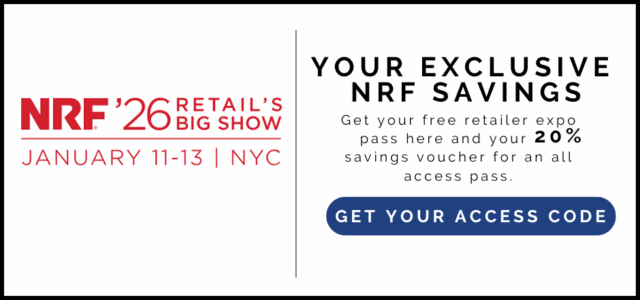Nancy Marino, Associate Partner Columbus Consulting

A recent wave of tariff actions is quickly reshaping the global trade landscape, particularly between the United States and its global trade partners. While the full extent and impact of these tariffs remains to be seen, one thing is already clear: For businesses dependent on a global supply chain, the only certainty is uncertainty. And that uncertainty doesn’t only affect long-term strategic planning. It’s already changing how businesses acquire raw materials and other inventory. Which means the disruptions created by tariffs don’t begin when those tariffs go into effect. They begin as soon as businesses begin to fear the impact of that disruption
Key disruptions include:
- Sudden supply and demand shifts – Businesses rush to order before tariffs take effect, then orders plummet. Uncertainty impacts suppliers disrupting their financial stability.
- Supply chain volatility – Businesses may need to carry extra inventory due to unpredictable shipping patterns.
- Material shortages and production delays – Longer wait times for raw materials disrupt manufacturing.
- Inventory volatility – Companies may need to carry excess stock to mitigate risks.
- Price volatility: Fluctuating material and goods costs strain budgets and reduce profitability.
- Supplier risk: Shifting to untested or higher-cost suppliers introduces new uncertainties.
- Logistics complexity: Tariffs alter trade routes and shipping patterns, leading to delays and increased costs.
Adapting: Long-Term and Short-Term Strategies
- Long-Term: Reshoring and Friendshoring
- Reshoring manufacturing to the U.S. reduces tariff risks but requires years to implement. Friendshoring—relocating production to allied nations, was viable in the past but is now uncertain as tariffs target Canada and Mexico.
- Short-Term: Preordering
- Businesses can preorder materials at pre-tariff prices, as many did in late 2024. However, this requires strong cash flow, storage capacity, and supplier flexibility. It’s a temporary fix, not a long-term solution
- By placing those large orders before a potential tariff increase, businesses chose to hedge their bets and delay the impact of new tariffs on their business, while taking on the potential risk that their inventory may become expired or obsolete before they’re able to use it. But preordering isn’t a sustainable solution to the supply chain challenges created by tariffs. As new regulations and shifting purchasing behaviors disrupt the global supply chain, businesses must be proactive in preparing for this disruption and optimizing supply chain performance in the face of adversity.
Preparing for Supply Chain Disruptions in 2025
With ongoing tariff uncertainty, businesses must proactively manage supply chain risks. Key strategic initiatives:
- Data-Driven Decision Making – Accessing reliable data helps businesses anticipate disruptions and respond effectively.
- Expert Guidance – Supply chain professionals can identify inefficiencies and optimize logistics.
- Scenario Planning – Monitoring shipping volumes and transportation capacity allows businesses to adjust in real-time.
- Recognizing Tariff Volatility as a Long-Term Issue:
- Tariff volatility is likely to persist for years, not just months, requiring proactive and strategic approach from supply chain leaders.
- CSCOs should recognize that remaining static or purely on the defensive will not lead to long-term success.
Turning Challenges into Opportunities
However, these challenges also create opportunities for businesses to innovate and future-proof their operations.
- Diversify Sourcing: Explore local sourcing options or suppliers in regions with lower tariff rates to reduce dependency on high-risk regions and increase flexibility.
- Invest in Resilience: Strengthen operations, attract outside investments from geopolitical actors and ecosystem partners, and uncover resilience levers within the supply chain.
- Flexible Warehousing: Implement flexible warehousing solutions to respond rapidly to shifting sourcing, increased stock levels, and just-in-case strategies.
- Strategic Partnerships: Collaborate with partners to share risks and opportunities and leverage their expertise and resources.
- Focus on Innovation: Invest in new technologies and processes to improve efficiency, reduce costs, and enhance agility.
- Rebalance: As early winners and losers emerge from tariff shifts, CSCOs should be cautious about treating initial changes as permanent, and demand planning must account for further escalations, de-escalations, and competitor responses.
Strategies to navigate tariff disruptions
To navigate going tariff uncertainty, business approaches should focus on:
- Simulate scenarios with predictive analytics: Advanced AI tools can model the impact of tariffs on costs, inventory, and lead times, helping businesses identify the most viable paths forward.
- Diversify supplier networks: Supply chain orchestration platforms can help evaluate supplier performance and risk, enabling organizations to strategically build relationships across multiple regions to minimize tariff exposure.
- Double-down on real-time visibility: End-to-end visibility ensures that businesses can monitor demand, inventory, and logistics in real time, making it easier to adapt quickly to new tariffs.
- Data-driven decision making: Reliable supply chain data enables proactive responses to disruptions.
By taking a proactive approach, companies can reduce the risks of tariff-related supply chain disruptions and maintain operational stability.
ABOUT NANCY MARINO
Nancy Marino is an Associate Partner at Columbus Consulting with a proven track record of successfully leading retailers and brands for implementation of processes from design to delivery and development of their Go-To-Market strategies. She is respected for her leadership skills and project management oversight for executing system initiatives and international acumen having managed global sourcing and buying offices in over 50 counties. Nancy is a decision leader and change management expert. She is an adjunct professor at FIT and is pioneering leadership in the PLM AI retail space.
ABOUT COLUMBUS CONSULTING
Columbus Consulting delivers solutions that drive true value and have been transforming the retail and CPG industries for over two decades. We are a retail consulting company of industry experts. Our approach is simple, if you do it, we do it. We are more than consultants; we are experienced practitioners who actually sat in our clients’ seats. We understand the challenges, know what questions to ask and deliver the right solutions. Columbus offers a unique, consumer-centric approach with an end-to-end perspective that bridges functional & organization silos from strategy to execution. Our specialties include: unified commerce, merchandising & category management, planning & inventory management, sourcing & supply chain, data & analytics, accounting, finance & operations, people & organization and information technology. Let us know how we can help you. To learn more, visit COLUMBUSCONSULTING.COM.

